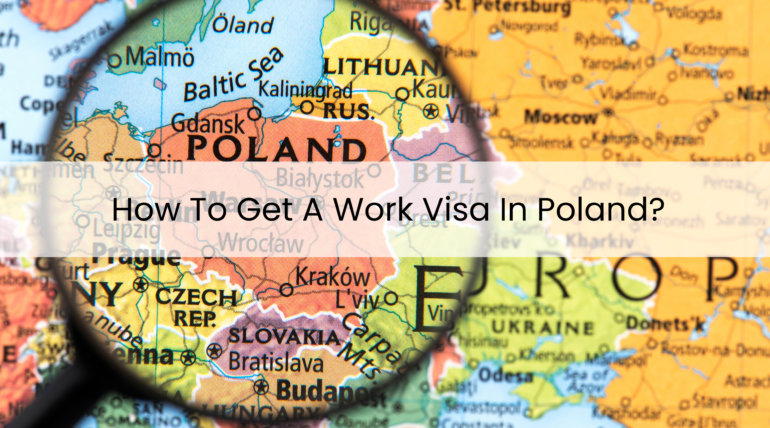How to Get a Poland Work Visa?
To obtain a Poland work visa, the process typically involves three steps:
#1 Employer’s Role in Applying for a Work Permit:
Your employer in Poland plays an important role in this process. They need to apply for a work permit on your behalf at the local Voivodeship office (Governor’s Office in Poland). This involves submitting various documents, including the application form, proof of paid application fees, proof of the legal status of the employer from the National Court Register (NCR), records of the employer’s economic activity, copies of your passport pages, proof of your health insurance, the company deed, statements showing profits or losses made by the employer, and a copy of your work contract. Connect with
Globalogy’s Job Support team to land a Job in Poland.
#2 Applying for a Work Visa at the Polish Embassy:
Once the work permit has been granted, your employer will forward it to you, along with your work contract and any other required documents. With these, you can apply for a work visa at your home country’s Polish Embassy or Consulate. Locate the nearest embassy, complete the application form through the e-Konsulat system, make a visa appointment, collect the necessary documents (including your work permit and employment letter), and submit your application on the scheduled date. If a visa interview is required, make sure to attend it.
#3 Entering Poland and Starting Work after Obtaining Authorization:
After receiving authorization, you can enter Poland. Upon arrival, you’ll likely need to present your visa and other documents to border control. Following entry, you must register your residence within four days at the local city council district office. Once this is done and you’ve obtained your residence card, you can start working.
Time and Fees for Processing Require to get Work Visa in Poland
Usually, it takes about six weeks for the embassy or consulate to process the visa. It’s a good idea to start the application at least two months before your planned trip to account for any delays and because the type of visa is important. The fees for the visa depend on the kind of work and how long you plan to stay, ranging from €11.05 to €44.19. Usually, you have to pay for the visa yourself unless your employer decides to help. Employers are not required to pay, but many in Europe do, so it’s a good idea to talk to your employer about the payment during the application process.
Duration and Validity of Poland Work Visa
The Poland work visa has a validity of three months, and if you plan to stay longer, you’ll need to apply for a residence permit. The duration of your work permit aligns with the terms specified in your employment contract. If you wish to extend your stay, the process involves your employer initiating the extension through the Voivodship Office. It’s important to start the extension process at least 30 days before your current visa expires, ensuring a smooth transition. Additionally, there’s an option for seasonal work permits lasting up to nine months. To obtain this, you must meet certain requirements, including a desire to engage in seasonal work, a stable income, health insurance, and proof of accommodation. For those considering seasonal work, a temporary residence permit is necessary, providing a framework for a temporary stay in Poland.
Securing the right work permits and collaborating closely with your employer are important steps for a successful work journey in Poland. The flexibility offered by different types of work permits caters to diverse job situations. Timely collection of essential documents, early visa application, and understanding of the associated fees are crucial elements. With the visa valid for three months, extending it for a longer stay involves coordination with your employer and the Voivodship Office, and for expert assistance,
Globalogy’s Visa Expert team stands ready to help streamline the process.








